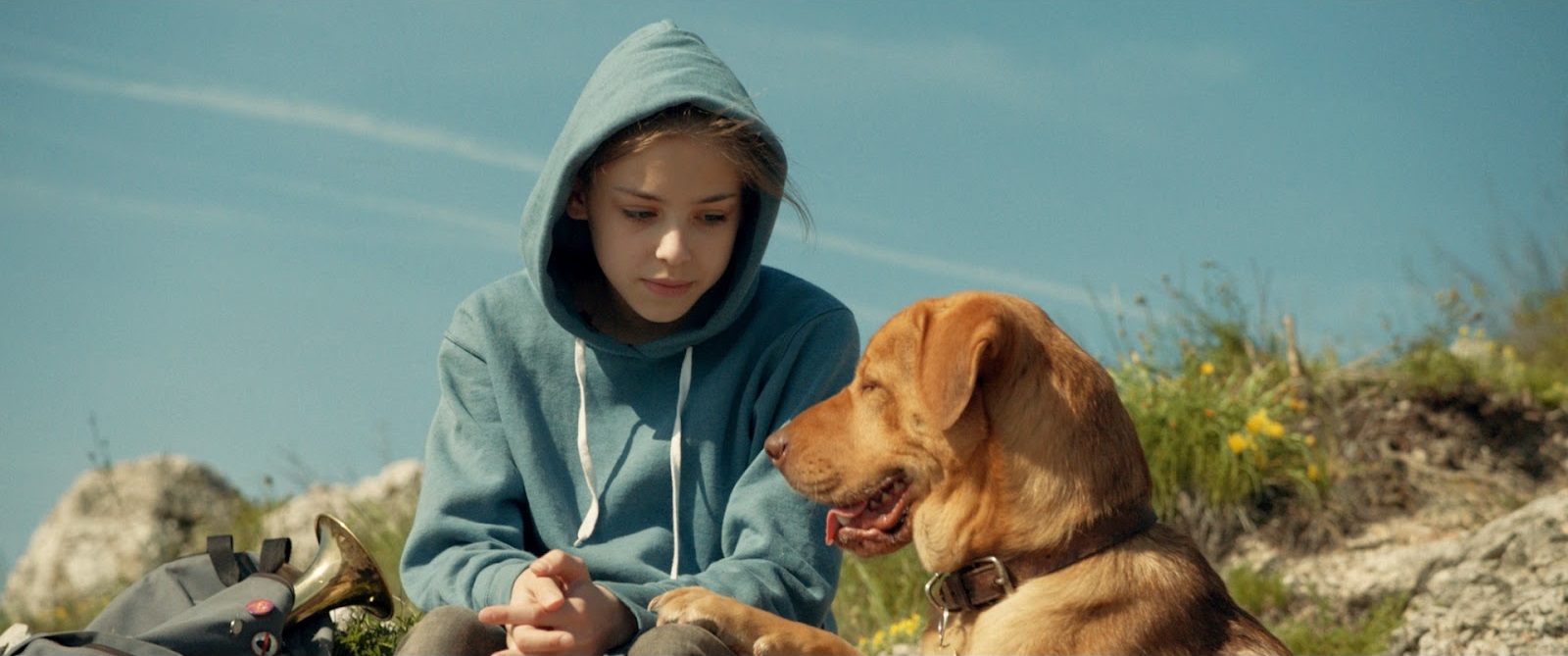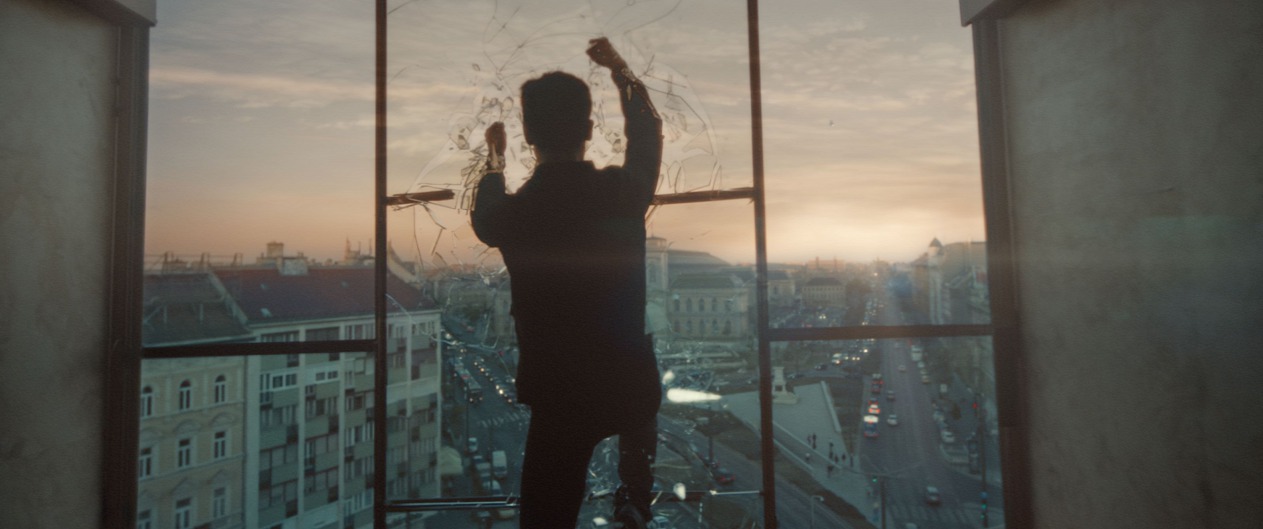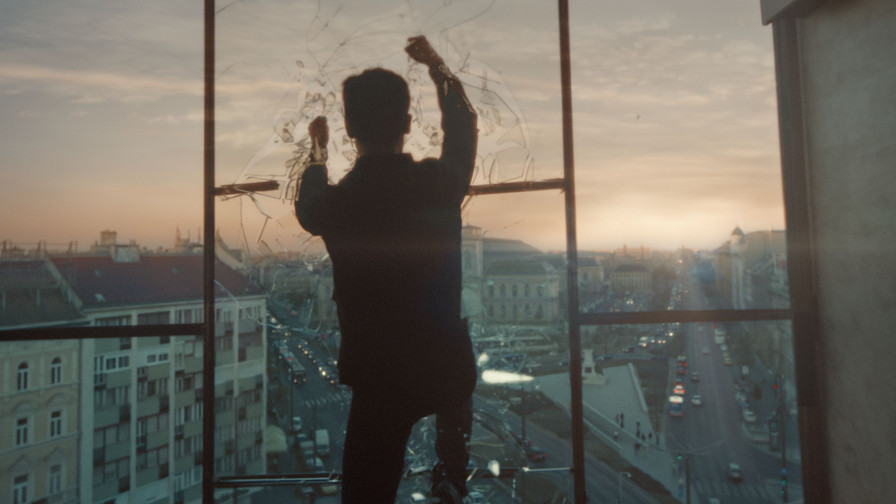Cannes, Where Films Are Truly Born
“Cannes is not a purpose, but a tool to reach as many viewers as possible”, said Kornél Mundruczó in 2014 when ‘White God’ was selected to be in the festival programme. The tool has worked, as ‘White God’ has become Mundruczó’s greatest success in Hungary, Europe and the United States. Not only was the film distributed overseas, it was also selected to appear at the most prestigious of American independent film heavens, Sundance. None of this could have been possible without Cannes: Cannes chose the film and Cannes awarded the film; the rest is history.
It is to nobody’s surprise that Mundruczó is back, three years later: his latest feature, entitled ‘Jupiter’s Moon’, has been selected among the world’s best films, in competition for the Palm d’Or. This year the Cannes Film Festival premieres auteurs like Fatih Akin, François Ozon, Todd Haynes, Noah Baumbach, Sofia Coppola and Michael Haneke, which is a hell of a selection for the festival’s 70th anniversary; to be in competition in Cannes, and on top of that to be in this company is an honour for any Hungarian movie. “It’s a big thing to be invited to this selection. I feel honoured and scared at the same time. The greatest acknowledgment is that, from time to time, I can participate among these fantastic filmmakers. Honestly, I can truthfully say, this time it’s the participation that counts”, adds Mundruczó.
It will be the seventh time that Mundruczó visits the Cannes Film Festival. He has made his way, little by little since the very beginning, by climbing the ladder in a specific yet original way. Mundruczó was the first Hungarian director to ever be invited to the Cinéfondation with his graduation film, ‘Little Apocrypha No. 2’, a pre-study to ‘Delta’ and ‘Joan of Arc on the Night Bus’, a short film that was originally part of an omnibus film and invited to the Directors’ Fortnight before being developed into a separate opera feature, as well as ‘Johanna’, which was presented by Un Certain Regard. ‘Delta’ won the FIPRESCI Prize and ‘White God’ received the main award in Un Certain Regard. It is not easy to follow all these achievements!

White God by Kornél Mundruczó
Mundruczó loves to return to his topics and motifs, and Cannes sure loves his way of thinking. Mundruczó reciprocates this love, and his all-time favourite moment must have been when ‘White God’ won the festival’s main prize in 2014. “It was such a euphoric moment, of course. But the real beauty is when viewers and colleagues stop you on the Croisette to congratulate you. It’s that instant feedback.
A film premiere is a very delicate moment full of anxiety after all those years and all that hard work. You start questioning yourself: will people like my film? Will people understand it? I have been so lucky to have these special moments in Cannes. For me, Cannes is where my films were truly born”.
This is the third time that Mundruczó’s work has been invited to the main competition. Before him only four other Hungarian helmers had made it: Miklós Jancsó, István Szabó, Károly Makk and Márton Keleti. “I think of myself as a Hungarian filmmaker. I am proud to direct Hungarian movies and am delighted to be part of this tradition in filmmaking. Fortunately, contemporary Hungarian cinema is very strong, not only through individual talent but also through the power it represents: auteurism and independence”.
Mundruczó’s latest feature, ‘Jupiter’s Moon’, which was first known as ‘Superfluous Man’ and before that as ‘Flying Man’, centres around the refugee crisis. It is not the first time that the director addresses this issue; in his play entitled ‘Winterreise’, a Schubert opus, he used pictures taken in a Hungarian refugee camp. “When I first met people from the camp, I felt like their destinies represented being on the road and being alone, without a past or future. What Franz Peter Schubert wrote was so heartbreaking”. The script of ‘Jupiter’s Moon’ was written by Kata Wéber and had been ready for a long time. It was a dystopian vision about a European crisis; a vision that became reality when thousands of refugees camped for almost a month in Budapest’s Keleti Railway Station. As well as actually helping the migrants, Mundruczó was looking for motifs and images to represent a crisis.

Jupiter's Moon by Kornél Mundruczó
According to the synopsis, the story is about a young immigrant, played by Zsombor Jéger, who is shot down while illegally crossing the border into Hungary. Terrified and in shock, the wounded boy is now mysteriously able to levitate at will. He is smuggled out of the refugee camp by Dr Stern, played by Merab Ninidze, with the intent of exploiting him. However, the doctor is soon inspired by the boy’s amazing powers and takes a leap of faith. The film is a German-Hungarian co-production shot in Hungary with funding from the National Film Fund, Eurimages, ZDF-ARTE, Mitteldeutsche Medienförderung, Medienboard Berlin-Brandenburg and NRW.
Mundruczó tends to like a challenge: he shot a film on a river (‘Delta’), worked with 200 dogs (‘White God’) and can now direct levitation scenes. Ayran, the main character, actually flies in the movie thanks to a special crew that included the stunt coordinator Gáspár Szabó and the rigger Balázs Farkas, who both aspired to create the most credible view of levitation. Certain members of the crew are longtime participants in Mundruczó’s filmmaking: Viktória Petrányi as the producer, Kata Wéber as the scriptwriter, Marcell Ágh as the production designer, Dávid Jancsó as the editor and Marcell Rév as the cinematographer. A new composer has joined the team, Jed Kurzel, who has previously worked with Justin Kurzel (‘Macbeth’, ‘Assassin’s Creed’) and Ridley Scott (‘Alien: Covenant’), and who was also responsible for the music in the horror movie ‘The Babadook’.
Hungarian films are on fire these days: ‘Son of Saul’ won the Grand Prix in Cannes as well as an Oscar and a Bafta, ‘Not the Time of my Life’ won a Crystal Globe in Karlovy Vary and ‘On Body and Soul’ just won the main prize at the Berlinale. “I think we are living in a time that is very responsive to film culture. Every aspect of our life is based on a series of moving pictures, so the audience can increasingly learn to think in images. Hungarian cinema has always had an independent, auteurist tradition and been full of great artists. Now we can see the results of a long process, and in a highly funded system. We have to avoid simply being a passing wave and must continue our work”. ‘Jupiter’s Moon’ is on the verge of launching its international career, but Mundruczó already has plans for 2018: he is about to start shooting his first international production, a deep-sea sci-fi entitled ‘Deeper’.
Anita Libor
